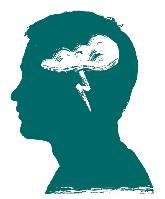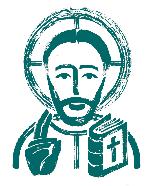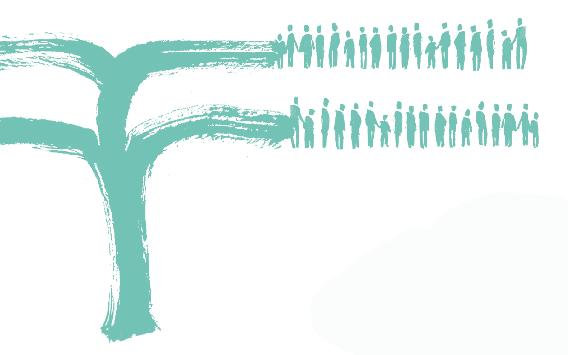WHAT CATHOLICS BELIEVE
An introductory booklet series

God Speaks To Us
The Search for Life’s Meaning
Evil in the World
God the Revealer
Looking at the Bible
The Blessed Trinity


An introductory booklet series

The Search for Life’s Meaning
Evil in the World
God the Revealer
Looking at the Bible
The Blessed Trinity

There are times when we find life difficult to understand. The same questions sound like a drum-roll in many people’s minds. ‘Why am I here? How can I make my life more worthwhile? Why do I – or the people I love –have to suffer? What will happen to me after I die?’ Such questions beat loudly in our minds when we are anxious; the answers echo more quietly.
Because of their experiences, some people take a pessimistic view of life. ‘It won’t change; it’s like a rat-trap.’ Others believe that human science, knowledge and goodwill will, on their own, make our lives happier and the world a better place. The trouble with these two opinions is that the first gives no reason for hope; while the second has been proved untrue by human experience. But there’s a third way of thinking about these things – one which has made sense to millions of people.
Sixteen hundred years ago a man named Augustine found the answers to his problems when he became a Christian. His life had not always been happy or peaceful and he had thought deeply about these things. The answers did not come easily to him, but when he came to know God he knew that he had finally found a meaning in his life: ‘You have made us for yourself, O Lord, and our hearts will not know rest until they rest in you.’
As a young person, Augustine tried to find happiness in his studies and work and social life, but he never found it. He threw a pocketful of coins into the wishing-well of life but returned home a poor man. He wanted to find the truth so that he could make sense of the things he did and the things that happened to him. He wanted to feel loved. He had a great deal of love to give as well – but he couldn’t



there’s a third way of thinking about these things



the big questions
find the right way to give it. Finally, he realised that only God could give him that clear truth and full love for which he longed. As he came to know and love God more deeply he felt sad that he had wasted so many years chasing after shadows. Later he wrote, ‘Too late have I known you; too late have I loved you…’ It wasn’t too late, of course – it’s never too late – but he certainly wished that he had found truth and love earlier.
Augustine is one of the world’s great thinkers. He is one of a long line of people who have found truth, peace and happiness in the Church which Christ began.
Today’s people aren’t necessarily comfortable with today’s world. Many have an ache in their bones, an empty space in their hearts. They aren’t happy now and may never have been happy. They may never have asked themselves the big questions about life and death – yet they feel in their bones that something is missing from their lives.
Others tell themselves that they are all right. They try to convince themselves that they will be happy one way or the other – if they can only keep working, or stay onside with their families and neighbours, or buy enough things, or remain in reasonable health, or win a million dollars. They may even blame the Government for what seems wrong in their lives. ‘If I vote against the Government,’ they tell themselves, ‘then everything will turn out all right in the end.’ Perhaps!
But perhaps not! Even if we own two refrigerators, three cars and half a dozen TVs we won’t silence the questions that nag at us like a mouse nibbling at cheese. The answers to these questions aren’t handed out to the lottery prizewinners. They can’t be found printed at the bottom of a supermarket receipt. So, where are they found?
Catholics say – as Augustine discovered – that the answers to these questions are found only if and when we begin to have a loving relationship with the God whom Jesus Christ revealed to us. But how can we know that God really exists? Perhaps God, too, is another brand of some product which is marketed by the Church. Perhaps the Church is only another form of supermarket which advertises God as its best product.
Some people are only convinced by scientific proofs. If they can’t see that a particular kind of washing-powder really makes the clothes whiter they naturally find it hard to believe that it is better than another kind. God isn’t ruled by science or mathematics or anything else.
Other things happen in life too, which can’t be proved scientifically. You may get a strong feeling that something is going to happen. You can’t prove it to other people. It’s only a feeling that you have. But you believe it. Then it does happen. Perhaps it was such an unlikely thing that everybody else thought that it couldn’t possibly happen. But it did! A dedicated scientist could only have told you, ‘That’s most unlikely to happen – so unlikely, in fact, that I can safely say that it won’t.’ The scientist, with full scientific training would have been wrong. And you, perhaps without any scientific training, would have been right. Even the ordinary events in our lives can’t always be explained. How, then, can the existence of God be explained? Perhaps all that we can say is that there are some logical arguments which show it is perfectly reasonable to reach the conclusion that there is a God.
The Catholic Church has always taught and still teaches today that, to some extent, we can work out by our own



minds that God exists. Some Catholic thinkers answer such questions as ‘How did things first begin?’ If, at first, there was nothing, and then there was something, how could this be – because you can add nothing to nothing as many times as you like and you’ll never get anything. Therefore, they say, there has to be a being powerful enough to make something out of nothing. There has to be a God.
When we want to talk about God, whom we cannot see, it seems best to start with the things we can see – the things in the universe surrounding us. Whether we are thinking of the earth, the sea, the stars, we know that things follow a pattern. The sun appears daily in our skies even when we can’t see it because of clouds; tides come in and go out; trees and plants put on new leaves in the springtime. Yes, there’s a pattern. If we studied the universe with a telescope or looked at tiny earth-bound things through a microscope we would find that this is true. And the more we learn about our natural world the more true we find it to be. Everything in our universe seems to follow some law of nature.
Science, in fact, has come about because scientists know that things follow natural laws. They see the pattern, the law, the design in the universe. They can predict – as you can – that the sun will rise tomorrow. They can predict an eclipse of the sun years before it happens. But they can’t say how this pattern first came into being.
Yet Christians and people who belong to non-Christian religions can all say that some intelligent being planned it this way. This ‘Someone’ we call God.
There are other approaches of this kind. In some respects, and to some people, they may not seem to prove that God exists. But at least they show that it’s perfectly reasonable to assume it as a fact. None of these approaches can make us believe in God – but they can help. On the other hand, there’s no way of proving that God doesn’t exist. So faith in God isn’t just an intellectual exercise; it’s also an affair of the heart. … a being powerful enough to make something out of nothing
But the most convincing reasons for saying that God exists may come from people’s experiences. Many books have been written about amazing experiences which people have had – experiences which led to belief in God. Even people you know may have had them. Those who have such experiences find that their lives are changed forever. They are the same people as before, but their values and their view of life are very different. Perhaps you are meant to be one of those people.
If the history of the world was a large painting, we would find that it was splashed with the grim colours of sickness and death, suffering and sadness, injustice and violence. There’s always a war going on somewhere. Famines and disasters erupt each night on our television screens. If there is a God, if God truly loves us, how, it is fair to ask, can these things happen?
We can understand some suffering. If people deliberately injure themselves we can understand why they suffer. But there are others – the innocent ones who are the victims of war and hunger and violence and prejudice. Why should these children suffer, these good people, when they truly deserve life and love?
God, who can do anything, could have allowed our world to be without pain and evil – but that wouldn’t have been the world we know. It would have been a world without freedom. It would have been a world of perfectly obedient angels. If there were no pain there would certainly be no organic life, no illness or death. There would be no hunger and no need for food. We would be like gods. We would

have everything we considered we needed to keep us happy; except for one thing – we wouldn’t have freedom. If we could only act in a perfect way, if life was always perfect, there wouldn’t be any villains – but there wouldn’t be any heroes or heroines either. We would be prisoners, unable to choose between right and wrong (because we could only choose to do right). We would not be free –even if that meant that we might misuse our freedom.
The world’s problems are generally caused by our own actions. People become selfish or revengeful or racist so there is a war. People don’t respect their environment properly so there are floods and famines. God doesn’t do these things to us. We do them to ourselves.
The fact that bad things happen leaves space for people to become more generous, more understanding, more forgiving, more courageous. We wouldn’t have these wonderful gifts if the world was so perfect that they had no meaning and no use. Our patience while feeling pain can also be a wonderful help to others. Just as the suffering of Jesus can make us feel more compassionate, so our own suffering can bring compassion into the lives of the people who know us.

We can’t make suffering easier by saying this. Christians feel toothache just as sharply as those who aren’t Christian. They cry when someone they love dies – exactly as nonChristians do. But they have a different interpretation of these tragedies. They can see what they mean. They don’t lose hope. They know that suffering is part of being human, part of the reality of life. It can make them value other things more. It can be worn like a comfortable pair of old shoes because they know that Jesus Christ, who loved them so much, also suffered – and suffered for them.
A famine here, a war there – nothing moves us more than the suffering of others, particularly of the innocent and the helpless. The needs of other people help us to be loving and generous, to make sacrifices ourselves.
None of this way of thinking makes tragedies less tragic. But no one ever said that being free came cheaply. Freedom comes at a price. Part of that price is the fact that we and people like us are sometimes unjust to others and cause them to suffer. The other side of that coin is that we are also able to act with compassion.
In later booklets you will read what Christianity can do for us. Here, though, it has to be said (as you may already know) that if ever an innocent person lived on earth it was Jesus Christ. Yet Jesus was nailed to a cross and put to death. The Cross is at the centre of Christianity just as suffering is at the centre of human life.
Shocked and bewildered by their own suffering, Christians can gaze at the image of Jesus nailed to a Cross. He freely accepted his suffering because he wanted us to suffer less. The cross of suffering and loneliness is part of people’s lives whether they accept Jesus or whether they don’t. Our own suffering brings us closer to Jesus, our suffering brother, and reduces in us some of the things that make us less acceptable – pride and a sense of self-importance, the desire for more and more things, and so on. Men don’t die any happier merely because they have fifty shirts. Having fifty dresses won’t make a dying woman any more peaceful.
The true followers of Jesus, our suffering and loving Lord, can’t expect to be free of suffering for suffering – and the willingness to endure suffering – is one of the marks of being Christian. Jesus said,
‘Anyone who does not take his cross and follow in my footsteps is not worthy of me. Anyone who finds his life will lose it; anyone who loses his life for my sake will find it’ (Matt. 10:38-39).













They will share in the resurrection of Jesus
These are consoling words, but they don’t seem to change anything. The fact is that the problem of evil and suffering can’t be solved by explanations. But Christians believe that something happened once which gives us a way out of the problem – they believe that after his suffering, death and burial Jesus rose again to a new and glorious life. Christians call this rising from death the resurrection –and it is the resurrection of Jesus which gives our suffering a meaning and helps it to become bearable. It gives us hope. It helps us to endure our suffering with fortitude.
Jesus suffered and died as we do. Yet his death was accepted with great hope. On the cross he uttered a psalm that begins with what seems a cry of despair, but finishes with a prayer of praise and confidence in God. Jesus’s trust in God was vindicated by his resurrection and glory. The example of Jesus is our guarantee that the same victory, despite suffering and death, will be ours.
By rising out of death Jesus gave us hope too. Pain, loneliness, agony – all were part of the death of Jesus. But they weren’t the end of everything. They led to the resurrection, the rising of Jesus from death to life, to the new life of Jesus, lovingly united with his Father, in Heaven. Just as the Cross stands at the centre of the life of Christians, so too does the resurrection. We are all called to share that wonderful new life –and pain, suffering and death are the only gateway to it.
Christians who are faced with death are consoled by the knowledge that their lives, though about to change, won’t end. They will live after their death – in a new and profoundly different way – their lives will not be merely put out, as a light is when someone turns the switch. They believe that they will live on forever. They will share in the resurrection of Jesus.
That knowledge is not meant to cause us to pretend that we don’t feel pain. Nor is it meant as a reason for overlooking the pain and suffering that other people feel. (Our task as Christians is to help any suffering person, anywhere, anytime). But the time will come for each of us when we need to prepare ourselves for our deaths. Then we can take heart from the thought that, after we die, we will experience life forever. It will prove to be (and does prove to be) an essential source of consolation at this most difficult time in our lives.
The notion of life beyond death comes very naturally to Maori people. The Tangi is the celebration of it. The community (the iwi) grieves; the community is transformed by new life. The dead become sacred; they are now ancestors. Food is shared by the community. Green branches are torn from living trees and worn as a sign of life. The Pacific Island peoples also have a strong sense that life is found in death. Perhaps that sense is weakest in Europeans who are told by the advertisers to find their security in things. But we can’t find security in possessions. In fact we can’t even find security in life. Our only security lies in God, who provides us with what we truly need – including life itself.
Everyone will suffer at some time. If there is no God, then their suffering is without meaning. But the Christian accepts that God has a plan for the world, and part of that is to show us, through the death and resurrection of Jesus, that suffering and death can have a meaning. They may still be difficult; they may still be feared. But hope allows the Christian to find another, very different, meaning. They are the gateway to our new life with God.
In the Book of Revelation St John describes the new life to which all God’s people are called:
Then I saw a new heaven and a new earth; the first heaven and the first earth had disappeared now, and there was no longer any sea. I saw the holy city, and the new Jerusalem, coming down from God out of heaven,


that suffering and death can have a meaning
Are you able to relate any of what you have read here on suffering to sufferings in your own life and in the world about us?
as beautiful as a bride all dressed for her husband. Then I heard a loud voice call from the throne, ‘Look, here God lives among human beings. He will make his home among them; they will be his people, and he will be their God, God-with-them. He will wipe away all tears from their eyes; there will be no more death, no more mourning or sadness or pain. The world of the past has gone’ (Rev. 21:1-4).
Christians believe that, as a result of that promise, they do not need any explanation of suffering or death.

We have said that it is reasonable to believe there is a God. We have also talked about suffering – which some people interpret as proof that there can’t be a God. But we interpret it as evidence of God’s loving plan for us – that suffering and death will bring us to unending life.
The human mind can’t take us much further. It can tell us only a little about God. That’s why God helps us. He loves us so much that he made himself known to us. He even sent his own Son, Jesus Christ, to make his love plainer. Not only did Jesus give us messages of love and compassion (his Word), he also gave us himself. We call this gift ‘revelation’ because God, our Father, has been revealed to us through his Son. He shows himself in the universe in a dim way. But through his Son he is vividly revealed: for it’s an astonishing fact that God came to live among us, to be with us to embrace us in love (see Phil. 2:-11; Col. 1:15-20).
God personally seeks us out and makes himself known to us. In the writings of the prophet Ezekiel the Lord says:
‘Look, I myself shall take care of my flock and look after it. As a shepherd looks after his flock when he is with his scattered sheep, so shall I look after my sheep. I shall rescue them from wherever they have been scattered on the day of clouds and darkness.
I shall bring them back from the peoples where they are; I shall gather them back from the countries and bring them back to their own land. I shall pasture them on the mountains of Israel, in the ravines and in all the inhabited parts of the country.
I shall feed them in good pasturage; the highest mountains of Israel will be their grazing ground. There they will rest in good grazing grounds; they will browse in rich pastures on the mountains of Israel.
I myself shall pasture my sheep, I myself shall give them rest – declares the Lord.
I shall look for the lost one, bring back the stray, bandage the injured and make the sick strong. I shall watch over the fat and healthy. I shall be a true shepherd to them’ (Ezek. 34:11-16).
When we seek God we let ourselves be found by him. We say ‘Yes’ to God because of who he is and what he does. God speaks to us through the prophets who, many years before Christ was born, said that God would come to save his people. Most of all though, God speaks to us through Jesus, his Son. St John tells us:
This is the revelation of God's love for us, that God sent his only Son into the world that we might have life through him (1 Jn. 4:9).



"I


Those words tell us a lot about God. In our language, God is a particular kind of person – one who loves us. God gave our world everything that is. God even gave us his Son. God gave God to us. What an extraordinary giving that was.
How was God shown to us? We see glimpses of God in the natural world’s beauty and laws. In addition, no nation has ever been without some knowledge of God. But because their thoughts and hopes weren’t focussed on the true God, the world’s religions had only rays of the truth and great, dark patches of error. That didn’t help much. So God enlisted some people to tell others what kind of being he was.
About 1800 years before Jesus Christ was born God made himself known to Abraham and appointed him to be the father of a ‘chosen people’. Thus God showed himself first to the Jewish people. He cared for them. He acted when they had a crisis. He freed them from slavery in Egypt.


From their prayer and the experiences of their lives they learnt much about God
The Jewish people were very conscious of their special relationship with God, and they knew that they were meant to make him known wherever they went. God drew leaders from among them – some to lead the people and some, the prophets, to teach them. What the prophets taught, above all, was that God’s past actions showed that he would always care for them. From their prayer and the experiences of their lives they learnt much about God and God’s love for them. The teachers also showed the people what God expected of them.
If the people did not live in the way they were expected to as God’s chosen ones, the prophets were quick to point out where they had gone wrong and to condemn their actions. As time went by these teachings and traditions,
together with some of the prayers which the Jewish people used, were written down. Today we call these the Hebrew Scriptures or the Old Testament of the Bible.
The Old Testament then is a collection of the history, prayers, stories and traditions of God’s people before Jesus came on earth. It tells how God, during those centuries, revealed himself to his people.
It’s time for us to look more closely at this wonderful book. The Bible is ‘The Book’. That is what the name means. Every year more copies of it are sold than of any other book. In fact, the Bible is not just one book but a collection of books which were written by different people at different times and places. It is a collection of writings which are very different from one another.
There’s something else that needs to be said at the beginning of this section. Christians who aren’t Catholics regard the Bible as a largely personal communication between God and themselves. They believe that the words of the Bible mean what individual Christians think they mean. They reach this conclusion because they consider that God reveals the meanings to each individual reader. But in practice different readers reach different conclusions about what the same Bible passages mean. As a consequence, among the Christian denominations there’s no authoritative interpretation of the Bible’s meaning.
Catholics, on the other hand, think of the Bible as ‘the Church’s book’. They realise that the Church existed for
centuries before there was agreement as to which books belonged to the Bible and which didn’t. Over the centuries, members of the Church have prayed from, lived by, studied and taught the Bible under the guidance of the Spirit of God, and under the authority of the Bishops and the Pope who are entrusted with the task of giving authentic interpretation to the Bible.
The Bible has been described as ‘God’s love-letter to the world’. It offers guidance and help to those who read it. When we consider it as a whole we see that it is the history of God’s people. It shows how they speak and relate to God. But it also shows how God speaks to and acts towards them – not only to them, but also to us, too, because our own religious history begins with the Jewish people.
What happens to God’s people still has a meaning for us. It always has a meaning for the Church, because the Church is God’s people now. The past shows how God’s plan for the world unfolded, and especially how a saviour was at the centre of that plan. The Bible promised that he would come, and those who read the Bible prepared for his coming.
Christians believe that the one who was to save them did come into the world. His name was Jesus Christ. Catholics believe that Jesus Christ is still living at the heart of his Church, and that he is still at the centre of the world’s story. Just as the Jewish people became a channel of God’s compassion to the world, so today’s believers are expected to be the same. That’s why the Bible is important to us. It still shows us God’s plan for the world.
The Old Testament came to us through God’s chosen people, the Jews. It tells us the story of that people. We can’t be certain who wrote each part of the Old Testament because, sometimes, events were not written down till centuries had passed. But it still remains the story of the People of God.
Catholics believe that the whole Bible is the word of God. We say that it is inspired. By that we mean that God influenced the writers in a special way so that the truth was told. But these people weren’t merely computers. They also used the language of the people of their time. They had never heard of computers, or nuclear power, or evolution, or television. So they didn‘t write about them. The Bible doesn’t refer to such things and it’s pointless to claim that it does. What the Bible does describe is God’s attitude to his people, and what our attitude should be towards God and each other.
We know that the people of those days thought that the sun rose each day and moved across the sky, and they said so in their writings. But it would be silly for us to say, ‘The Bible must be completely untrue because the sun doesn’t move around the earth; the earth moves around the sun.’ The Bible doesn’t talk about geography, or physics, or mathematics – it tells us the truth about God’s plans for his people.
Each writer of different parts of the Bible wrote in a particular way. The writers weren’t the same people, so they didn’t write in the same way. The same thing would happen today if we got a group of people together to write a book. Some of the Bible writers wrote history, some wrote stories, some wrote poetry. They all wrote in a different style, but they all set down the truth as God inspired them to see it.
We wouldn’t read poetry in the same way that we would read history; so, too, we have to take different attitudes to different books of the Bible and read them in different ways. Scholars of the Bible can help us here – they can tell us which parts of it are history, poetry or parables, for example. We can’t read it properly unless we realise this.
At the beginning of the Bible, for example, there is an account of how the universe was made. At the time the


Book of Genesis was written, thousands of years ago, people thought and wrote quite differently. They didn’t intend to give us a scientific record of how the universe came into being – they didn’t know that anyway – they wanted to tell us that they believed that God was present and active when everything came into existence; they wanted to show how greatly God loved his people. More than that, though, Genesis also reveals that God begins everything, he is Lord of all – and he is the same God who entered into the way of life of his Chosen People by making a pact, a covenant with them.
The Bible is a religious book. It is a story about God’s faithfulness and the faith of God’s people. It isn’t a science or history book – as we think of those kinds of books now. It doesn’t set out to tell us how things developed, or how long they took to do so. It shows a loving God in action – and millions of people have since found and recognised that God.


The second part of the Bible is called the New Testament. Jesus Christ is at its centre. It is part of God’s message, God’s Word, to us, and it gives us further and greater proof of God’s love. But it, too, needs to be understood.
All Christians have a deep respect for the New Testament as God’s word, but Catholics and other Christians who aren’t Catholic have a different approach to it. Non-Catholic Christians probably believe that anyone who believes in Jesus and reads a Bible will get the true meaning from it, because the Spirit of God will speak to their minds directly, even if they know nothing more about it than the words they read.
Catholics, on the other hand, believe that the Bible is a precious book which has been left in the care of the Church
which has the authority to say what it truly means. And they also believe that the life, worship, and teachings of the Church itself were entrusted to the Pope and Bishops for their authentic transmission to all generations. They call this the ‘Apostolic Tradition’ – all that the Church is, all that the Church believes. Together the Bible and the Tradition hand on what God has revealed to the World.
Human authors wrote the New Testament and their stories once again told of God’s relationship with his people. The four Gospels are the chief part of the New Testament because they hold the teaching and actions of Jesus Christ, the Son of God. The New Testament also tells how Jesus began a Church, the new People of God, in which he would reside forever. It was to be this Church which, two hundred years after his death, collected various writings about Jesus which had been done after his death, and put them into a book – the Bible. Thus Catholics think of the Bible as the Church’s book about Jesus and about God our Father and about the Holy Spirit. Only the Church, Catholics say, can truly interpret the Church’s book.



The four Gospels are the chief part of the New Testament
Christians believe the Bible is the ‘word of God’ – the story of God’s loving plan for humankind. Catholics also speak of the Bible as ‘the Church’s book’. What are your thoughts on this?
The word ‘Gospel’ is an ancient one. In the Old Testament it meant the ‘Good News’ about any of the occasions when God acted for his chosen people. God showed time and time again that he would save his people from their troubles – especially the troubles of the community. One such example of ‘good news’ was about the Jewish people’s liberation from slavery in Egypt.
When we look at the New Testament we will find this title before each Gospel: ‘The Gospel according to Matthew, Mark, Luke and John’. These four key witnesses to the life of Jesus all tell similar stories. The Gospels are found at
the beginning of the New Testament. They are fairly short. Three of them are quite alike, but the fourth Gospel, St John’s, is written differently from the others. It’s style and thought is more mystical. In fact, though, there is really only one Gospel because there is one central piece of ‘Good News’ – God sent his Son, Jesus Christ, to announce that his realm had begun, that the love which he promised for his people could be met in his Son, Jesus Christ. God’s promise that he would love and save his people would be accepted by many people who would be drawn into a community of believers. They would become branches of the vine, part of one body, the People of God.

They would become branches of the vine, part of one body, the People of God
It was by their preaching that the apostles, the closest friends of Jesus, told how the long-awaited saviour had come to save his people from sin and death and that his name was Jesus. In this way they obeyed his command to ‘tell the Good News to everyone’.
The book called The Acts of the Apostles gives several examples of these sermons.
Some of the earliest Christian writings are found in the letters written by St Paul, a very busy churchman. They were written to give advice about the problems of the Christians in the various places where he had taught and helped form communities of believers.
The Gospels weren’t written to replace the teaching of the apostles, but to give a different kind of witness to the extraordinary events of those days. Like St Paul’s letters,
they grew out of the daily activity of the Church which was busily engaged in the first century of the Christian period, bringing the Good News to the world.
The New Testament gives us a set of truths. More than that, though, it shows us a person. In Jesus, God revealed himself and his love in words and actions. The chief figure of the New Testament (and of the whole Bible, in fact) is Jesus Christ. He is the one who reveals God’s nature to us. His life and his teaching give us a clear understanding of God’s love and compassion and his wish that we will all experience happiness forever. He showed us that God’s love for us is like that of a parent. He taught us to call God ‘Our Father’. He had a special relationship to God as Father, and he wanted us to relate to God in a similar way.
Jesus showed us that God is full of love and full of life. He also told us about the Holy Spirit and showed us how both the Father and the Spirit affect our lives and the Church itself. The Letter to the Hebrews overflows with enthusiasm and conviction for God’s wonderful gift to the world:
At many moments in the past and by many means, God spoke to our ancestors through the prophets; but in our time, the final days, he has spoken to us in the person of his Son, whom he appointed heir of all things and through whom he made the ages.
He is the reflection of God’s glory and bears the impress of God's own being, sustaining all things by his powerful command; and now that he has purged sins away, he has taken his seat at the right hand of the divine Majesty on high (Heb. 1:1-3).


His life and his teaching give us a clear understanding

We don’t find the word ‘Trinity’ in the New Testament but when Jesus told us about God he showed us that in one God there are three divine persons. There are not three Gods – there are three persons in one God. You are one person – a single person who breathes, moves and acts. God is three persons. How can this be when there is only one God? It is an example of what was earlier called ‘a mystery’, something not contradictory, but beyond the grasp of our minds. The three divine persons are the Father, Son and Holy Spirit. They are equal in every way, yet they are different from each other. They are different from each other, yet they are one God.
The Gospels tell us that there is one God; that Jesus is the Son of God, truly God, who has been sent by the Father; and that the Holy Spirit, who is also God, has been sent by the Father and the Son to help all those who believe. Jesus had a special relationship to God as Father and to the Holy Spirit – they were the powers behind his being sent and the source of the power of his words and actions.
Jesus guaranteed that he would not leave those who love him unsupported:
‘I shall ask the Father, and he will give you another Paraclete to be with you for ever, the Spirit of truth whom the world can never accept since it neither sees nor knows him; but you know him, because he is with you, he is in you’ (Jn. 14:16-17).
The Holy Spirit, who had supported Jesus during his life and work, would continue the work which Jesus had come to do.
Jesus spoke about the Trinity in the context of saving us from sin and death, and drawing us into the community of those who believe. He spoke of his own work in the world
and about sending the Holy Spirit. He had been sent to save his people and that work would be carried on forever by the Holy Spirit.
Catholics believe that Jesus Christ is God, the Second Person of the Trinity. They hear him say, as St John writes, ‘The Father and I are one’ (Jn. 10:30). Jesus is in a position to show us everything about God because he is God. We cannot know God, our Father, unless we first know Christ, the Son. If we are to understand what the Father wants us to do we must learn from what Jesus Christ said and from how he lived. Jesus is the one who saves us all. He is ‘… the Way, the Truth and the Life’ (Jn. 14:6). He draws us into a true friendship with God.
The doctrine of the Blessed Trinity is a real blessing because it teaches us how different God’s life and existence are from ours. We can only think with our thoughts and from our experience. But the doctrine of the Blessed Trinity reminds us that God is completely Other than we are. In the Bible, God is constantly referred to as Holy, Holy, Holy, and the word ‘holy’, at its deepest level, means He who is completely ‘Other’ (see Is. 6:3; Rev. 4:8). It is upon this sense of the tremendous otherness of God that worship is founded. Yet the Otherness is also Love – so we can worship our Father. This relationship underlines the mystery of God and the mystery of the human person.
The Third Person of the Trinity is the Holy Spirit. During the Last Supper, Jesus made it clear that he was not going to leave his people without help:
‘I have said these things to you while still with you; but the Paraclete, the Holy Spirit, whom the Father will send in my name, will teach you everything and remind you of all I have said to you’ (Jn. 14:25-26).

the Holy Spirit, whom the Father will send in my name
To this day it is the Holy Spirit of God who guides individuals as well as the Church, and sees to it that all who share the work of Jesus faithfully hand on the message which Jesus gave us.
It is to God the Father that each person is entrusted through Jesus, the Son, by the power of the Holy Spirit. Baptism, the ceremony of entry into the friendship of God and the community of believers, is based on the belief that we are born again – that the power of the Spirit gives us a new birth, joins us as brothers and sisters to Christ, and makes us adopted children of the Father.
Those who have had that experience must surely want to spread their good news to others, since they, too, have become members of the Church founded by Jesus Christ to spread everywhere the Good News that God loves us with a profound and unending love.
In the Gospels there are many stories about people who had great needs and great faith and how Jesus had healed them. One of these is about a woman who was desperate for a cure. St Luke tells us how it happened:
Now there was a woman suffering from a haemorrhage for the past twelve years, whom no one had been able to cure. She came up behind him and touched the fringe of his cloak; and the haemorrhage stopped at that very moment. Jesus said, ‘Who was it that touched me?’ When they all denied it, Peter said ‘Master, it is the crowds
round you, pushing.’ But Jesus said, ‘Somebody touched me. I felt that power had gone out from me.’ Seeing herself discovered, the woman came forward trembling, and falling at his feet explained in front of all the people why she had touched him and how she had been cured at that very moment. ‘My daughter,’ he said, ‘your faith has saved you; go in peace’ (Lk. 8:43-48).
We all have hurts from which we need to be healed. If we believe that the Father will always love and provide for us, that the Son will always save us, and that the Holy Spirit will always console us, we can be delivered from our hurts.
It is suitable to close this booklet with a prayer – in this case a prayer which is also a poem. James K. Baxter, a New Zealand poet and a Catholic, has written in praise of God the Father, God the Son and God the Holy Spirit:
Song to the Lord God

Lord God, you are above and beyond all things, Your nature is to love. You put us into the furnace of the world To learn to love you and to love one another.
***
Lord Christ, you are the house in whom we live, The house in which we share the cup of peace, The house of your body that was broken on the cross, The house you have built for us beyond the stars.
Lord Holy Spirit, beyond, within, above, Beneath all things, you give us life. Blaze in our hearts, you who are Love itself, Till we shine like the noonday sun.
Lord God, we are the little children, The feeble ones of the world. Carry us for ever in your breast, Lord God, Give us the power by love to be your holy ones.
Perhaps a prayer like that can become your prayer. Perhaps God himself will teach you how to love him and how to love others.
The next booklet will tell you more about Jesus Christ, since if we know him we will know God; and if we know and love God we will find happiness.
Did you know?
In this ancient image, Christ the Word of God, speaks the word of God. Holding the New Testament in his left hand, he raises his right hand in blessing (see Matt. 17:5, Phil.2:10).
Nihil obstat Rev Merv Duffy SM, S.T.D.
Imprimatur
+ John A. Cardinal Dew Archbishop of Wellington 8 December, 2015
Text: John Weir
Biblical text: New Jerusalem Bible, Darton, Longman and Todd, 1985
Cover numeral design: Kowhaiwhai
Illustration: Adam Errington Design: Cluster Creative
Not for public sale.

Website: www.catholicenquiry.nz This booklet is part of an introductory booklet series on what Catholics believe
The Catholic Enquiry Centre
Phone: 04 385 8518
Email: info@catholicenquiry.nz